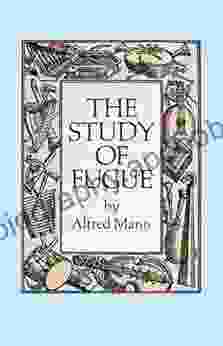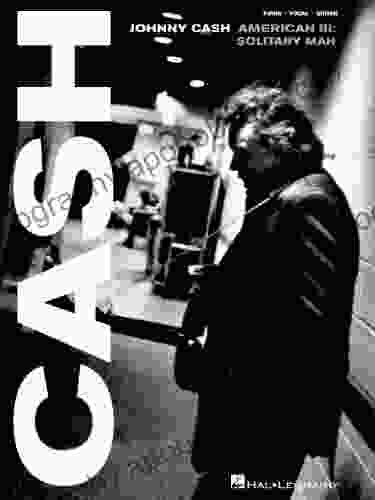Unraveling the Complexities of Fugue: A Comprehensive Guide to Dover's Masterpiece

:
In the realm of music analysis, few forms have captivated scholars and composers alike as much as the fugue. A intricate polyphonic structure characterized by the imitation and development of a single melodic theme, the fugue has challenged and inspired musicians for centuries. Among the most authoritative and comprehensive works on the subject is "The Study of Fugue" by Alfred Mann, published by Dover Publications.
4.8 out of 5
| Language | : | English |
| File size | : | 46214 KB |
| Text-to-Speech | : | Enabled |
| Screen Reader | : | Supported |
| Enhanced typesetting | : | Enabled |
| Word Wise | : | Enabled |
| Print length | : | 524 pages |
| Lending | : | Enabled |
The Structure of the Fugue:
Mann's book delves deeply into the technical aspects of the fugue, providing a systematic framework for understanding its structure and development. He begins by introducing the basic elements of a fugue:
- Exposition: The initial presentation of the fugue's theme in all voices.
- Countersubject: A secondary melody that accompanies the theme during the exposition.
- Episodes: Interludes between the entries of the theme that provide harmonic and melodic contrast.
li>Development: The section where the theme and countersubject are subjected to various transformations and variations.
Mann then explores more advanced topics, such as stretto (the close imitation of the theme in different voices) and augmentation (the lengthening of the theme in its reappearances).
Historical Context and Analysis:
In addition to its technical insights, "The Study of Fugue" provides a rich historical context for the fugue's development. Mann traces the form's origins in Renaissance vocal music to its culmination in the Baroque era, with an emphasis on the works of J.S. Bach.
Mann's analysis focuses on the structural and musical significance of fugues, examining how composers such as Bach used the form to create works of extraordinary complexity and expressive power. He also discusses the various types of fugues, including the simple, double, and triple fugue.
Pedagogical Value:
"The Study of Fugue" is not only a valuable reference for scholars but also an excellent resource for music students and composers. Mann's clear and concise explanations, coupled with numerous musical examples, make the book an accessible and engaging to the subject.
Students will gain a thorough understanding of the fugue's technical and historical aspects, while composers will find inspiration and guidance for their own fugal compositions.
:
Alfred Mann's "The Study of Fugue" is a definitive work on this captivating musical form. Its comprehensive analysis, historical context, and pedagogical value make it an indispensable resource for anyone interested in understanding and appreciating the fugue.
Whether you are a scholar, a student, or a composer, "The Study of Fugue" will provide you with a profound understanding of this complex and rewarding musical form.
Alt Attributes:
* Image 1: A close-up of a musical score, featuring a fugue in progress. * Image 2: A portrait of Alfred Mann, the author of "The Study of Fugue." * Image 3: A group of musicians playing a fugue on various instruments. * Image 4: A cover image of Dover Publications' "The Study of Fugue."
4.8 out of 5
| Language | : | English |
| File size | : | 46214 KB |
| Text-to-Speech | : | Enabled |
| Screen Reader | : | Supported |
| Enhanced typesetting | : | Enabled |
| Word Wise | : | Enabled |
| Print length | : | 524 pages |
| Lending | : | Enabled |
Do you want to contribute by writing guest posts on this blog?
Please contact us and send us a resume of previous articles that you have written.
 Book
Book Novel
Novel Page
Page Chapter
Chapter Text
Text Story
Story Genre
Genre Reader
Reader Library
Library Paperback
Paperback E-book
E-book Magazine
Magazine Newspaper
Newspaper Paragraph
Paragraph Sentence
Sentence Bookmark
Bookmark Shelf
Shelf Glossary
Glossary Bibliography
Bibliography Foreword
Foreword Preface
Preface Synopsis
Synopsis Annotation
Annotation Footnote
Footnote Manuscript
Manuscript Scroll
Scroll Codex
Codex Tome
Tome Bestseller
Bestseller Classics
Classics Library card
Library card Narrative
Narrative Biography
Biography Autobiography
Autobiography Memoir
Memoir Reference
Reference Encyclopedia
Encyclopedia Cathy Moore
Cathy Moore David Stott
David Stott Faraway
Faraway Gene Moyers
Gene Moyers Richard Esposito
Richard Esposito Alex Kane
Alex Kane Alexandre Ostrovski
Alexandre Ostrovski Johnny Bush
Johnny Bush Dean Reuter
Dean Reuter Stephen Keeling
Stephen Keeling Alexander Mccall Smith
Alexander Mccall Smith Chinenye Henrietta Ibeanusi
Chinenye Henrietta Ibeanusi Stacy Drumgoole
Stacy Drumgoole Heinz Guderian
Heinz Guderian Ramaz Jaiani
Ramaz Jaiani Vaseem Khan
Vaseem Khan Patrick Bennett
Patrick Bennett Alexandra Reinwarth
Alexandra Reinwarth Kathy Ganske
Kathy Ganske Gosia Nealon
Gosia Nealon
Light bulbAdvertise smarter! Our strategic ad space ensures maximum exposure. Reserve your spot today!
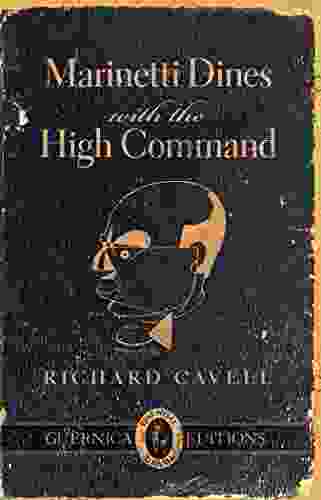
 Steve CarterMarinetti Dines with the High Command: An Essential Drama for Understanding...
Steve CarterMarinetti Dines with the High Command: An Essential Drama for Understanding...
 Randy HayesPoetry Collection For Romantic Souls: Ignite Your Heart with Verses of Love,...
Randy HayesPoetry Collection For Romantic Souls: Ignite Your Heart with Verses of Love,... Ian McEwanFollow ·17.3k
Ian McEwanFollow ·17.3k Vernon BlairFollow ·2k
Vernon BlairFollow ·2k Hayden MitchellFollow ·14.1k
Hayden MitchellFollow ·14.1k Allan JamesFollow ·12k
Allan JamesFollow ·12k VoltaireFollow ·10.3k
VoltaireFollow ·10.3k David Foster WallaceFollow ·7.8k
David Foster WallaceFollow ·7.8k Isaac BellFollow ·2.1k
Isaac BellFollow ·2.1k Christopher WoodsFollow ·6.2k
Christopher WoodsFollow ·6.2k
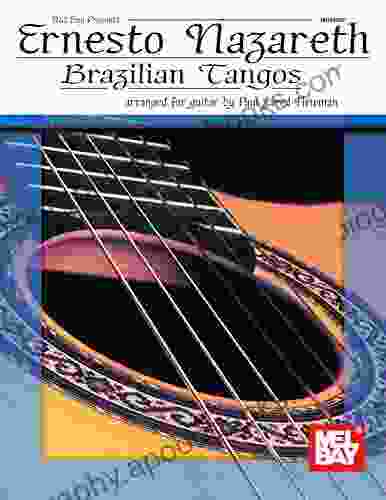
 Chuck Mitchell
Chuck MitchellUnveiling the Enchanting World of Ernesto Nazareth's...
A Musical Journey...
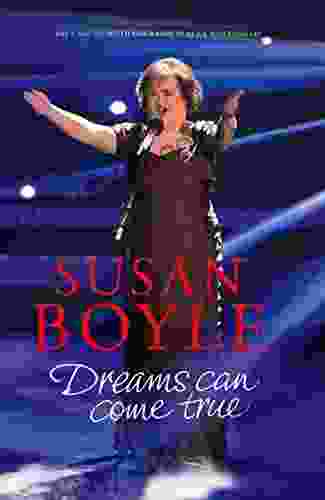
 Brent Foster
Brent FosterSusan Boyle: Dreams Can Come True
Susan Boyle's incredible journey from...
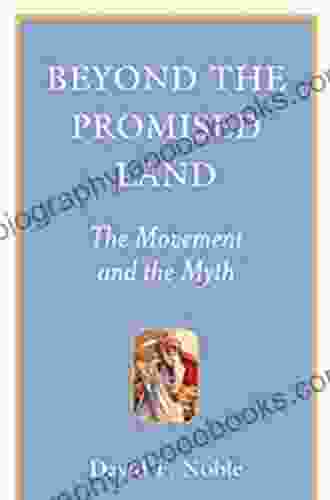
 Tom Clancy
Tom ClancyThe Movement and the Myth Provocations: Unveiling the...
In the realm of human...
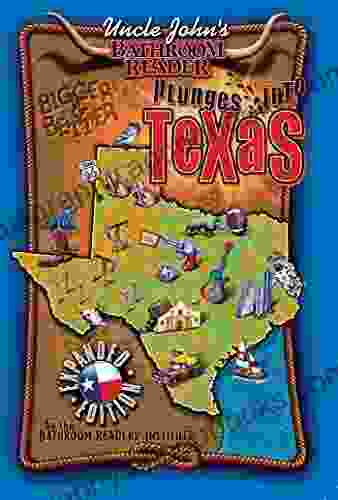
 Edward Reed
Edward ReedUncle John's Bathroom Reader Plunges Into Texas: Bigger...
Uncle John's Bathroom...
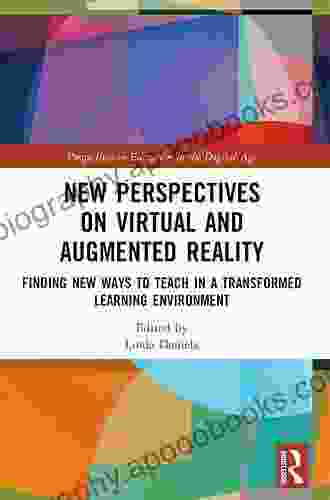
 Justin Bell
Justin BellNew Perspectives on Virtual and Augmented Reality: A...
Dive into the Cutting-Edge World of...
4.8 out of 5
| Language | : | English |
| File size | : | 46214 KB |
| Text-to-Speech | : | Enabled |
| Screen Reader | : | Supported |
| Enhanced typesetting | : | Enabled |
| Word Wise | : | Enabled |
| Print length | : | 524 pages |
| Lending | : | Enabled |


